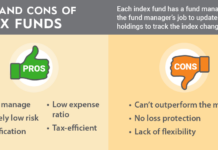
Debt consolidation is refinancing your old credits, where a lender merges multiple credits into one loan and repays off the old debts. You will end up with one loan with new terms from one lender only.
While debt consolidation has its advantages, like allowing you to have lower interest and only deal with one lender, it also comes with a set of disadvantages. One of these disadvantages is an effect on your credit score. Here’s how debt consolidation may bring a toll to your overall credit score;
Hard Inquiries
A hard inquiry or hard pull happens when an individual requests access to your credit report when you apply for credit. When you apply for debt consolidation, the lender wants to look at your credit history and scores before merging the loans. The exercise sheds some light on the kind of creditor you’re and helps set your new credit terms.
The problem with hard inquiries is that they negatively impact and lower your score by at least 5 points. One or a few hard inquiries might not have a significant impact on your credit score, but multiple hard inquiries will definitely give your credit score a dent.
To overcome this, you first need to confirm your credit score before applying for any debt consolidation. Let this be your guide to the best credit card or loan for consolidation. Second, do not apply for multiple new accounts hoping that one will go through. All those lenders are bound to run a hard inquiry within the same period, leading to numerous negative points. Third, only apply for a credit or loan transfer for what you can afford.
Hard inquiries stay in your credit report for a year or more. That means multiple hard inquiries will be a red flag to future lenders.
Low Average Credit Age
Debt consolidation translates to a new credit account like a new personal loan or credit card account. When calculating your average credit age, lenders usually consider all your credit accounts, including a new credit account. Since a new credit account doesn’t have any positive points yet, it will temporarily lower your average credit age.
However, as the account ages and you make timely payments, the account will start gaining positive points. In turn, your average credit age will start improving.
New Debts
After debt consolidation, you should restrain your impulse spending habits and leave the older credit lines alone.
It’s a relieving feeling when you get an opportunity to settle multiple credits and consolidate all into one with better repayment terms. But that should not be a gate pass to more spending using the older credit limits. Ensure that you remove any automatic subscriptions and payments from those accounts.
Debt consolidation increases the overall available credit amount, which lowers the credit utilization ratio. A lower credit utilization ratio translates to a better credit score. So, if you start accumulating new debts from the old credit accounts, your credit utilization ratio is bound to go up. That, plus the new consolidated debt, will definitely increase your credit utilization ratio, which will lower your credit score.
Don’t Close Old Credit Accounts
Spooky as the previous point sounds, it does not mean you should close your old credit accounts. Actually, closing those accounts will still harm your credit score, since it affects your credit utilization ratio.
Let those accounts remain open, where lenders can see that the debts are paid off. When you close old accounts, any balances or history will probably show as “N/A” instead of “Zero,” affecting the credit utilization ratio.
Debt consolidation helps relieve some weight off your overall debts, especially when you are struggling with a lot of debt. In such a situation, consolidating might help you get better credit terms, like lower interest and a better repayment term under a new lender. However, it does have a downside.
You are likely to affect your credit score through the hard inquiries, raking up new debts after the consolidation, and lowering your average credit age. Also, if you default on the consolidated debt, you will affect your credit score and probably become delinquent. But if you can keep up with the payments and keep gaining those payments, the negative impacts on your credit score will start improving.











